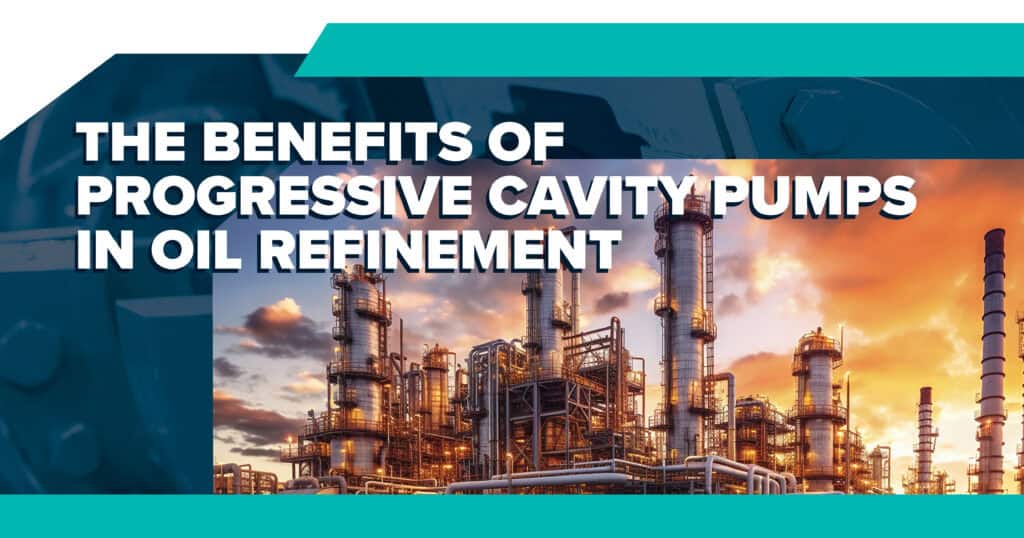When it comes to oil refinement, pump selection is more than a matter of flow rate and pressure. It’s about optimizing system efficiency, reducing maintenance downtime, and ensuring long-term process reliability. Among the many options available, progressive cavity (PC) pumps have earned a solid reputation for their ability to handle viscous, abrasive, and chemically aggressive fluids with consistency. For refineries looking to streamline operations, PC pumps can deliver major performance and cost-saving advantages, especially when custom configured to the specific application.
What Makes Progressive Cavity Pumps Ideal for Refining?
Progressive cavity pumps are a type of positive displacement pump, consisting of a helical rotor turning inside a stator. As the rotor turns, it forms sealed cavities that move fluid at a steady, non-pulsing flow. This unique design offers several advantages over traditional centrifugal or diaphragm pumps, particularly in the demanding conditions of oil processing.
1. Handling High Viscosity and Shear-Sensitive Fluids
Oil refinement often involves thick, viscous, or sludge-like materials that can damage or clog other pump types. PC pumps provide low shear and steady flow to excel in these conditions, which is ideal to preserve the integrity of complex chemical formulations. This is especially beneficial in applications involving additives, sludge, polymers, or emulsions where fluid structure matters.
2. Consistent Flow Under Variable Conditions
Many chemical pumps struggle to maintain consistent flow when dealing with fluctuating pressures, temperatures, or viscosity. Progressive cavity pumps, on the other hand, maintain volumetric efficiency even under these changing conditions. This makes them suitable for both upstream and downstream processes in refining operations.
3. Reduced Downtime and Maintenance Costs
Unlike centrifugal pumps that are prone to cavitation and seal wear when operating outside ideal parameters, PC pumps can tolerate a broader range of flow conditions without damage. Additionally, components such as stators and rotors are easily replaceable. Wear is also more predictable, enabling scheduled maintenance with minimal disruption.
Custom Pump Configuration for Refining Success
Every refinery presents unique challenges depending on the type of crude chemical additives and process stages. That’s why many off-the-shelf pumps often fall short. Custom-configured progressive cavity pump systems allow you to select the right materials (for example, elastomers compatible with aggressive chemicals), sizes, and accessories to match the precise needs of your operation.
For example, in high-temperature applications, PC pumps with special stator materials and cooling jackets may be required. In abrasive slurry services, hardened rotors and stators designed for high solids content extend operational life. These small adjustments—when guided by pump experts—can significantly reduce life-cycle costs and boost uptime.
Partnering with DXP Pacific for Smarter Pump Solutions
At DXP Pacific, we understand the intricate demands of oil refining. Our team offers more than equipment. We provide full system design, material selection, installation support, and life-cycle service. Whether you need a single progressive cavity pump or a complete chemical transfer system, we can tailor the solution to fit your refinery’s exact specifications.
Ready to Improve Refinement Efficiency?
Let DXP Pacific assist with selecting and configuring the ideal progressive cavity pump for your operation. Contact us today to learn more about our custom pumping solutions and how they can deliver reliable performance in even the most challenging refinery environments.

